Table of Contents
Introduction to Chicken Soup Spices
Chicken soup is a timeless comfort food that has been enjoyed across cultures for centuries. While the base of the soup is simple—chicken, broth, and vegetables—the real magic happens with the addition of spices. These tiny flavor bombs can transform a basic bowl into an aromatic masterpiece. Whether you're a seasoned chef or just starting out, understanding the right chicken soup spices can elevate your cooking game.
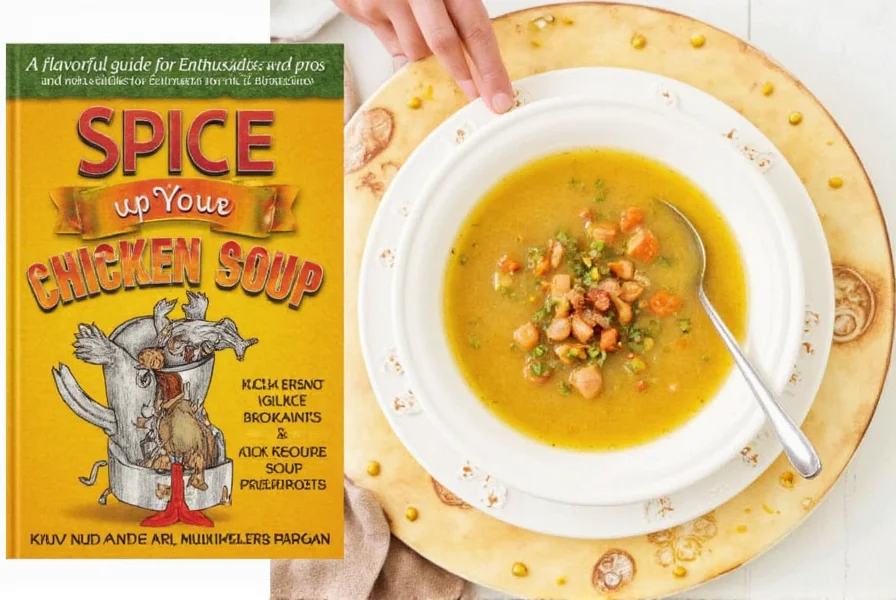
Common Spices Used in Chicken Soup
There are several spices that are commonly used in chicken soup, each contributing its unique character. Here's a quick overview of some of the most popular ones:
- Garlic: Adds a rich, savory depth to the soup.
- Onion: Provides a sweet, mellow base that enhances the overall flavor.
- Black Pepper: A classic choice that brings warmth and complexity.
- Celery Seeds: Offers a subtle, earthy note that complements the broth.
- Parsley: Adds freshness and a vibrant green color.
- Thyme: Brings a slightly floral and earthy aroma.
- Oregano: Gives a bold, Mediterranean flair.

Practical Tips for Using Chicken Soup Spices
Using the right amount and timing of spices can make all the difference. Here are some tips to help you get the most out of your chicken soup spices:
- Start Small: It's easier to add more spice than to fix an over-seasoned soup.
- Use Fresh Ingredients: Fresh herbs like parsley or thyme offer a brighter taste compared to dried versions.
- Layer Flavors: Add different spices at different stages of cooking to build depth.
- Experiment: Don't be afraid to mix and match spices based on your personal preference.
- Season as You Go: Taste the soup periodically and adjust the seasoning accordingly.
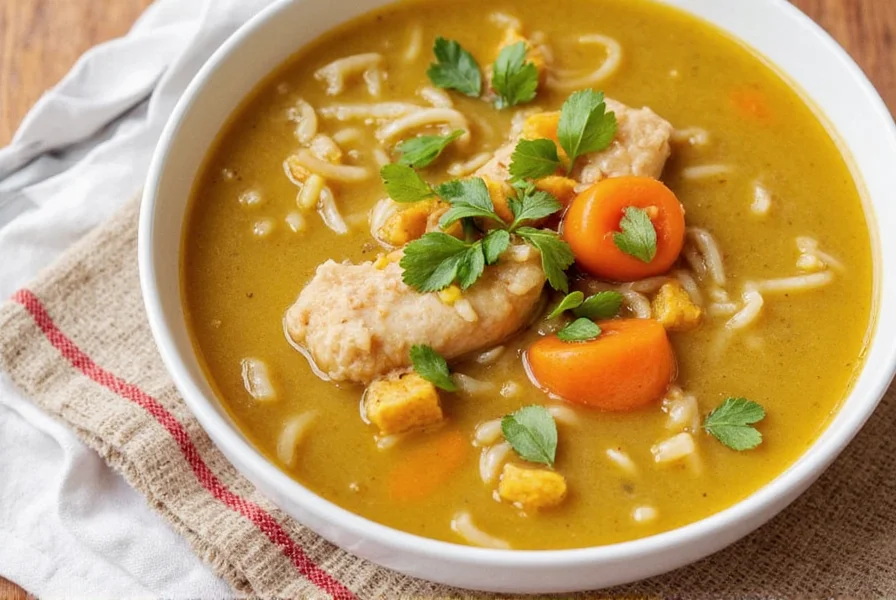
Comparison Table of Key Spices
| Spice | Taste Profile | Best For | Amount to Use |
|---|---|---|---|
| Garlic | Savory, pungent | Adding depth and umami | 1–2 cloves per pot |
| Onion | Sweet, mild | Enhancing the base flavor | 1 small onion per pot |
| Black Pepper | Warm, spicy | Adding heat and complexity | 1/4 tsp per serving |
| Celery Seeds | Ethereal, earthy | Complementing the broth | 1/2 tsp per pot |
| Parsley | Fresh, grassy | Adding brightness and color | 1 tbsp fresh, or 1 tsp dried |
| Thyme | Floral, earthy | Adding a subtle herbal note | 1 tsp dried or 1 tbsp fresh |
| Oregano | Bold, peppery | Giving a Mediterranean twist | 1/2 tsp per pot |
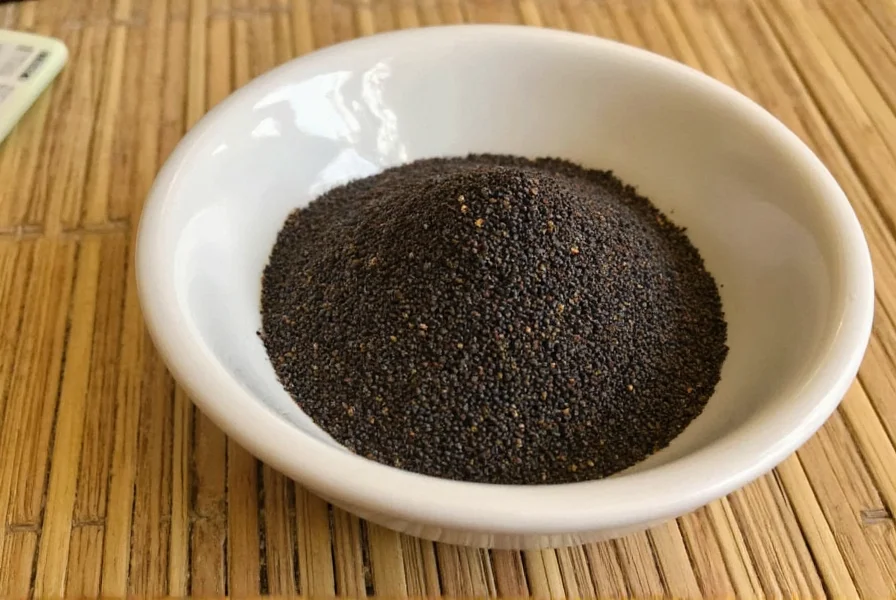
Buying Guide for Chicken Soup Spices
When it comes to selecting chicken soup spices, there are several factors to consider, including quality, freshness, and versatility. Here's a detailed buying guide to help you choose the best options:
Top Picks for Chicken Soup Spices
- Garlic Powder:
- Features: Intensely flavored and easy to use.
- Advantages: Long shelf life and convenient for quick meals.
- Use Cases: Ideal for busy cooks who need a fast and flavorful boost.
- Target Audience: Home cooks and meal preppers.
- Suitable Occasions: Weeknight dinners and emergency soups.
- Dried Parsley:
- Features: Rich in flavor and nutrients.
- Advantages: Adds a fresh, vibrant touch without the hassle of chopping.
- Use Cases: Perfect for garnishing and adding color.
- Target Audience: Health-conscious individuals and home chefs.
- Suitable Occasions: Family dinners and holiday gatherings.
- Thyme Leaves:
- Features: Offers a subtle, herbal fragrance.
- Advantages: Enhances the depth of flavor in broths and stews.
- Use Cases: Great for simmering soups and slow-cooked dishes.
- Target Audience: Cooking enthusiasts and gourmet chefs.
- Suitable Occasions: Special occasions and cozy evenings.
- Oregano:
- Features: Bold and pungent.
- Advantages: Adds a distinct Mediterranean flavor.
- Use Cases: Best used in hearty, robust soups.
- Target Audience: Those who enjoy bold flavors and international cuisine.
- Suitable Occasions: Weekend lunches and festive meals.
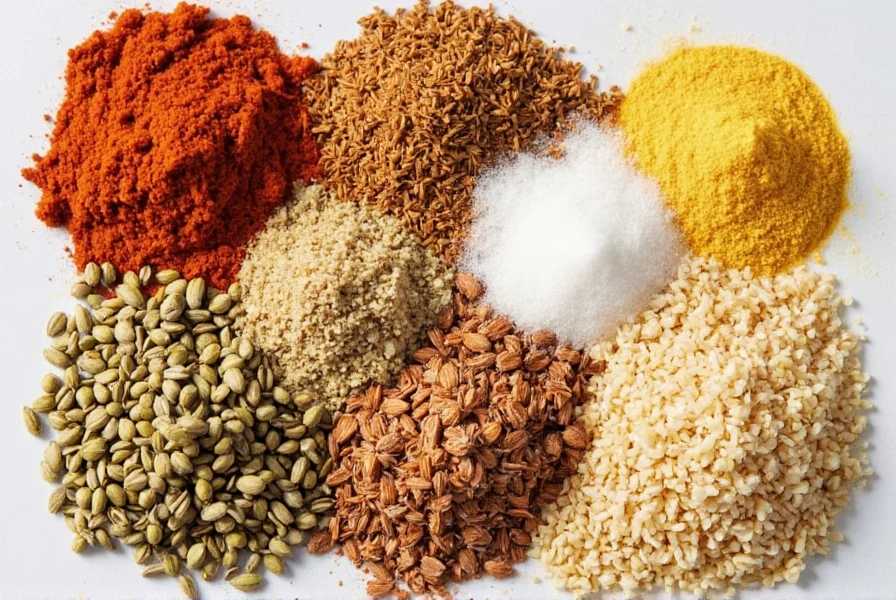
Frequently Asked Questions About Chicken Soup Spices
What are the essential spices for chicken soup?
The seven essential spices for chicken soup are garlic, onion, black pepper, celery seeds, parsley, thyme, and oregano. Garlic adds a rich, savory depth; onion provides a sweet, mellow base; black pepper brings warmth and complexity; celery seeds offer an earthy note; parsley adds freshness and color; thyme contributes a slightly floral and earthy aroma; and oregano gives a bold, Mediterranean flair. These seven spices form the foundation of most classic chicken soup recipes.
How do I know when to add spices to chicken soup?
The timing of adding spices is crucial for maximum flavor impact. Aromatic vegetables like onions and garlic should be sautéed at the beginning to build the flavor foundation. Dried herbs like thyme and oregano work best when added early in the cooking process to allow their flavors to infuse the broth. Fresh herbs like parsley should be added near the end of cooking to preserve their bright flavor and color. Black pepper and finishing touches can be adjusted right before serving. Remember to season gradually and taste as you go to achieve perfect balance.
Can I use dried herbs instead of fresh ones in chicken soup?
Yes, you can substitute dried herbs for fresh ones in chicken soup, but there are important considerations. As a general rule, use one-third the amount of dried herbs compared to fresh, since dried herbs are more concentrated. For example, if a recipe calls for 1 tablespoon of fresh thyme, use 1 teaspoon of dried thyme instead. Dried herbs work well when added early in the cooking process to allow time for rehydration and flavor release, while fresh herbs are best added toward the end to preserve their delicate flavors. Note that some herbs like parsley lose more flavor when dried, so fresh is preferred for garnish.
How much spice should I put in chicken soup?
The right amount of spice depends on personal preference and the size of your soup batch, but here are general guidelines: For a standard 4-6 serving pot of chicken soup, start with 1 small onion, 1-2 garlic cloves, 1/2 teaspoon celery seeds, 1 teaspoon dried thyme (or 1 tablespoon fresh), 1/2 teaspoon dried oregano, 1 tablespoon fresh parsley (or 1 teaspoon dried), and 1/4 teaspoon black pepper per serving. Remember the golden rule: start small, taste as you go, and add more as needed. It's much easier to add spice than to fix an over-seasoned soup. The comparison table in this article provides specific measurements for each spice.
What's the difference between using whole spices versus ground spices in chicken soup?
Whole spices and ground spices behave differently in chicken soup. Whole spices (like whole peppercorns or fresh garlic cloves) release flavor more slowly and subtly during cooking, creating a more nuanced broth. Ground spices (like garlic powder or onion powder) dissolve quickly and provide immediate, more intense flavor. Whole spices are ideal when you want a background note that develops over time, while ground spices work well when you need quick flavor impact or are making soup in a hurry. For the best results, many chefs recommend using a combination of both—whole spices for depth during cooking and a touch of ground spices for finishing.
Can I make my own chicken soup spice blend?
Absolutely! Creating your own chicken soup spice blend allows you to customize flavors to your preference. A basic blend could include equal parts dried thyme, dried parsley, celery seeds, and black pepper. For a more complex blend, add onion powder, garlic powder, dried oregano, and a pinch of paprika. Start with small batches (about 2 tablespoons total) and adjust ratios to your taste. Store your homemade blend in an airtight container away from light and heat. Freshly made blends will stay potent for 3-6 months. The advantage of making your own is avoiding preservatives and salt often found in commercial blends, giving you complete control over the flavor profile.
How do I fix over-seasoned chicken soup?
If you've over-seasoned your chicken soup, don't panic—there are several ways to fix it. For oversalted soup, add a peeled potato to absorb excess salt, or dilute with unsalted broth or water. For soup that's too spicy, add a dollop of yogurt or sour cream, or a squeeze of lemon juice to balance the heat. If herbs are overpowering, add more broth to dilute the flavors. The key is to make adjustments gradually and taste frequently. In the future, remember to add spices incrementally and wait at least 15-20 minutes between additions to allow flavors to develop fully in the broth.
What spices should I avoid in chicken soup?
While chicken soup is versatile, some spices can overpower its delicate flavor. Avoid very strong spices like curry powder, cumin, or chili powder in traditional chicken soup, as they can dominate the subtle chicken flavor. Also be cautious with potent dried herbs like rosemary or sage, which can easily overwhelm the broth. If you're experimenting with global variations (like Asian-inspired chicken soup), these stronger spices might work in small amounts, but for classic comfort food chicken soup, it's best to stick with the traditional aromatic vegetables and milder herbs that complement rather than compete with the chicken flavor.
Conclusion
Chicken soup is more than just a comforting meal—it's an art form. With the right combination of spices, you can create a dish that warms both the body and the soul. Whether you're using store-bought mixes or crafting your own blend, the key is to experiment and find what works best for your taste buds. Remember, the best chicken soup spices aren't just about flavor—they're about memory, tradition, and love. So go ahead, spice up your next bowl and savor every bite.
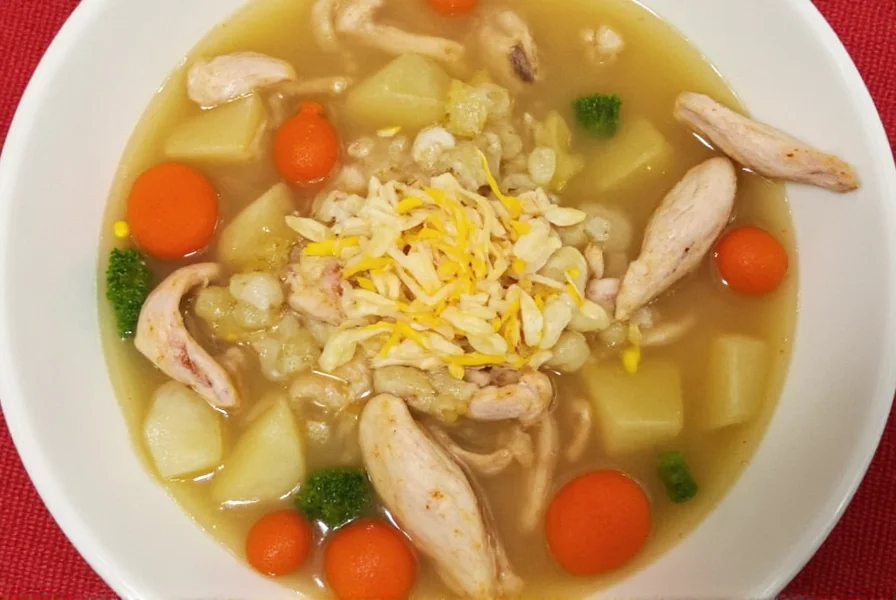











 浙公网安备
33010002000092号
浙公网安备
33010002000092号 浙B2-20120091-4
浙B2-20120091-4